
Thank You Japanese Arigato Gozaimasu Explosion Stock Vector (Royalty Free) 1819234856 Shutterstock
Ohayō gozaimasu: Meaning. Ohayō gozaimasu is comprised of two words: ohayō and gozaimasu. Ohayō comes from the word " hayō, " which is written in Japanese like this: 早う. The kanji " sō "—or more the more familiar " hayai "—is composed of two radicals, one at the top and one at the bottom. The one at the top is 日.
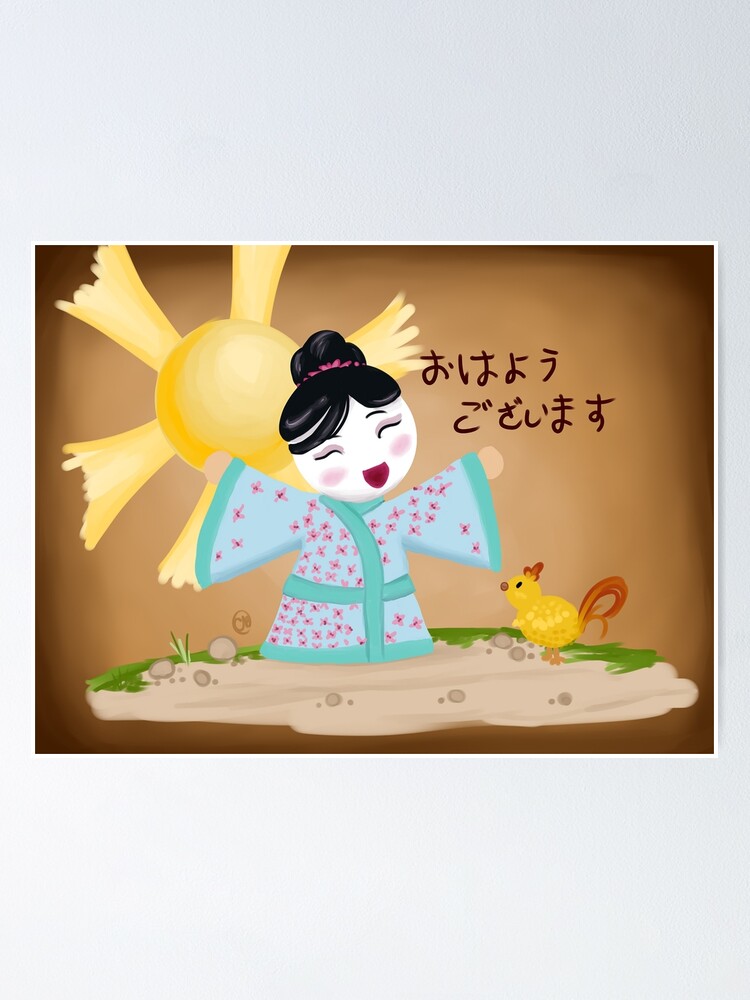
"Ohayo Gozaimasu" Poster by PTElephant Redbubble
Arigato Gozaimasu and Arigato Gozaimashita are polite ways to say Arigatou, and both translate to thank you very much. But these phrases are slightly different in usage. Arigato Gozaimasu (ありがとうございます) Arigato Gozaimasu (pronunciation) is a present tense used right after something you'll appreciate has been done. For example,

How To Pronounce Ohayo Gozaimasu YouTube
Arigato gozaimasu, a formal thank you. ありがとうございます。 Arigato gozaimasu. Thank you. Arigato gozaimasu (sometimes transcribed in "Arigatou gozaimasu") is a more polite way of saying "Arigato". This is the most common form of politeness when you talk to someone who has a higher professional or social status than yours.
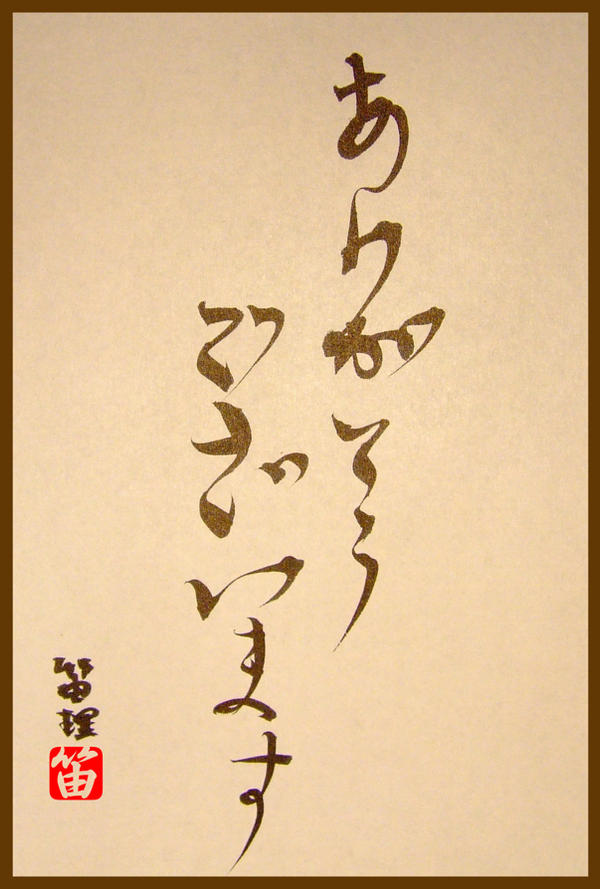
Arigatou Gozaimasu by Ferikun on DeviantArt
Ohayo gozaimasu (おはようございます) is a formal Japanese greeting meaning " Good morning ". The first word " ohayo " is derived from the adjective for " early " which is " hayai " (早い) and the last word " gozaimasu " (ございます) is commonly used to add politeness. Literally the full phrase translates as.
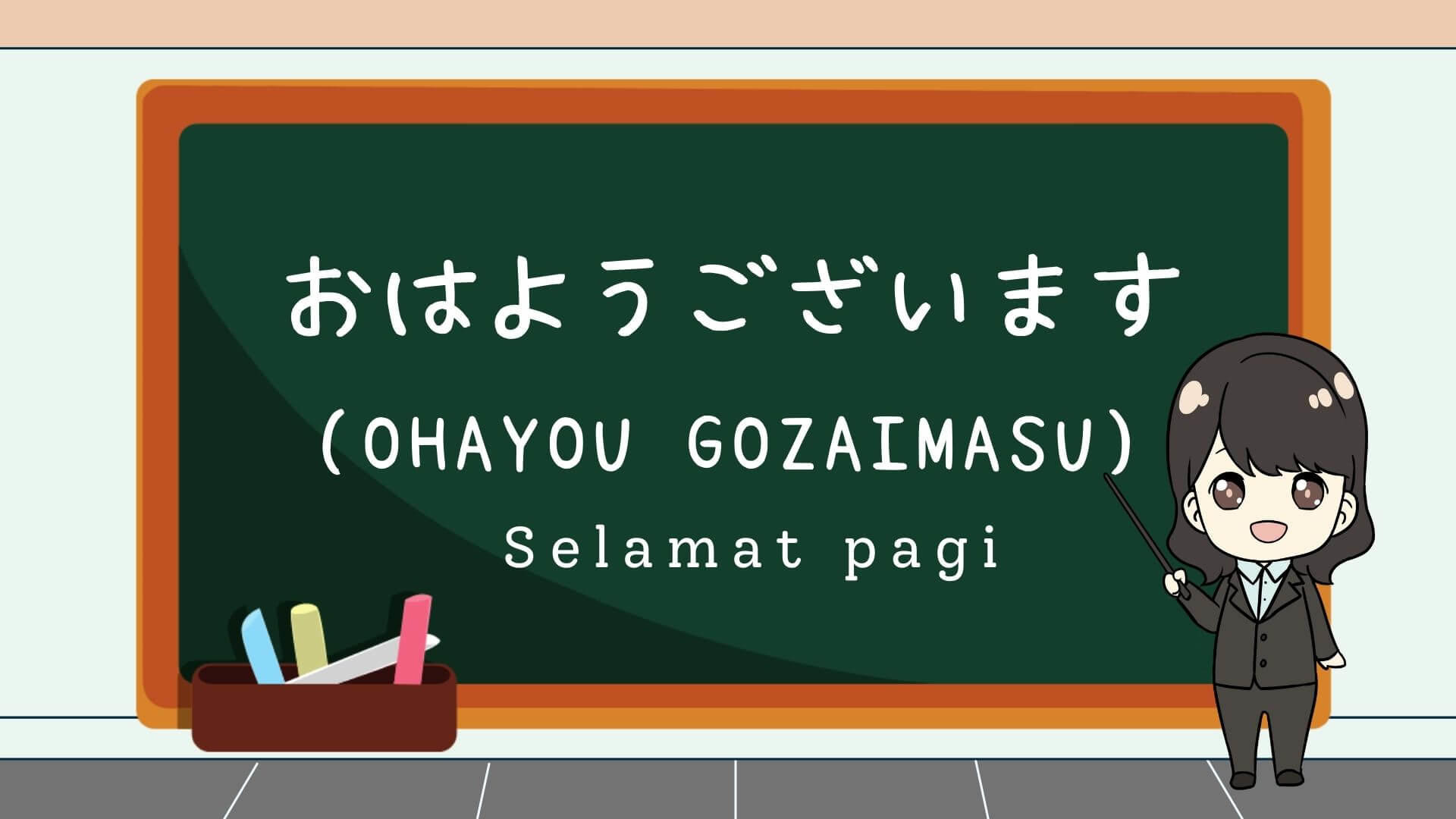
Ohayou Gozaimasu Arti Dan Penggunaannya Superprof
Formal way: Ohayo Gozaimasu (おはよう ございます) When addressing someone in a formal setting or showing respect to a superior, it is important to use the polite form of greetings. "Ohayo Gozaimasu" serves as a formal way to greet someone in the morning. Person A: おはよう ございます。. (Ohayo Gozaimasu.) Good morning.
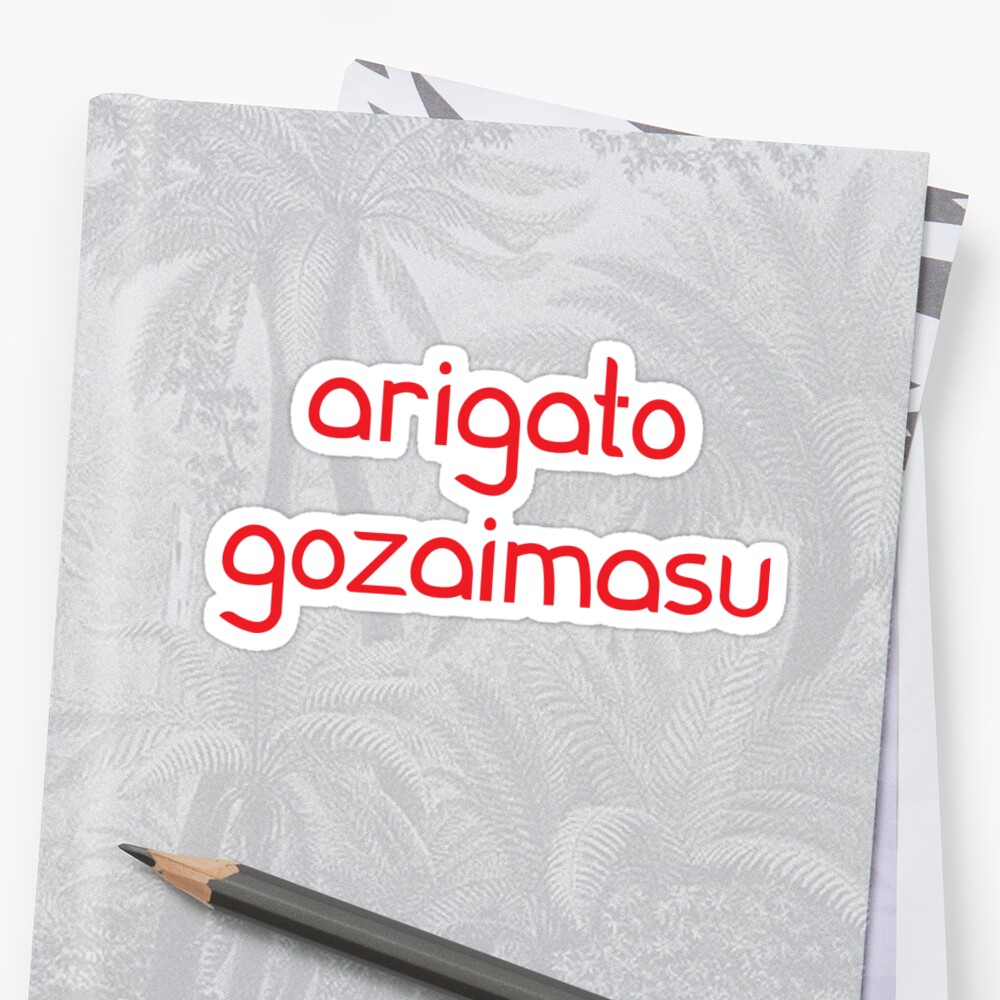
"Arigato Gozaimasu" Sticker by ChrisR777 Redbubble
It is used when talking friends. If used to your boss, that is rude. dōmo arigatō (どうもありがとう) This is almost same as dōmo, but this is commonly used. arigatō gozaimasu (ありがとうございます) It is very polite. So you could use this to boss. Share. Improve this answer.

Arigatou Gozaimasu! by ichibiko on DeviantArt
Example: 卒業おめでとう! (Sotsugyou omedetou!) — Congratulations on your graduation! おめでとうございます (Omedetou gozaimasu) — Congratulations. This is the polite form of "omedetou" and is appropriate in formal or respectful situations, such as with colleagues, superiors or in public settings.. Example: 新しい仕事のご成功、おめでとうございます。
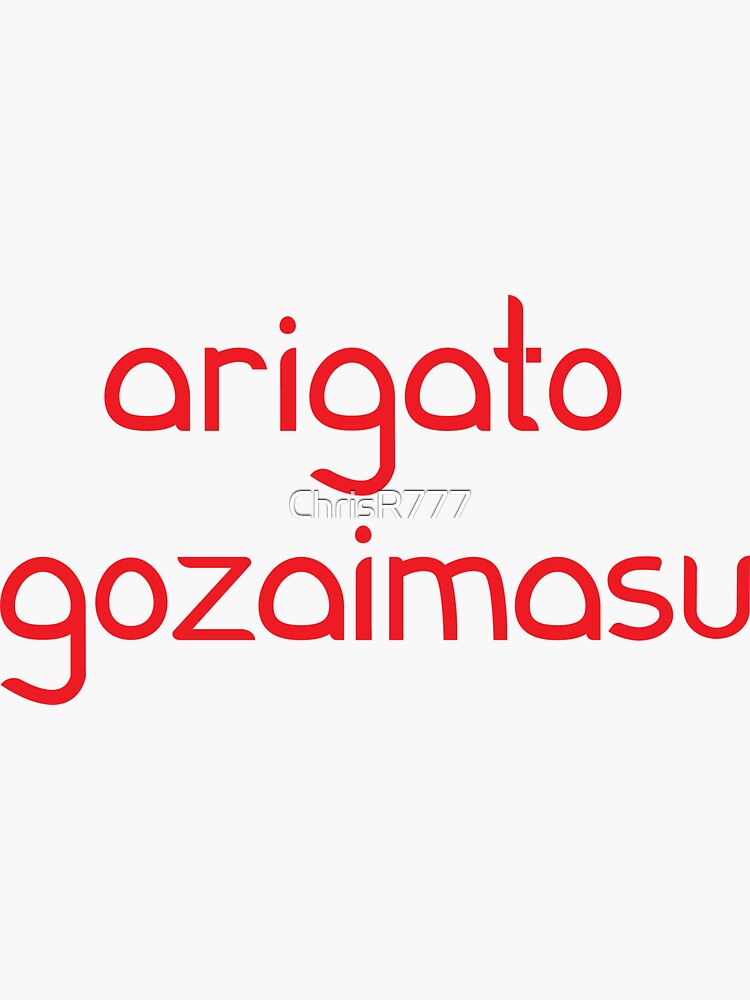
"Arigato Gozaimasu" Sticker by ChrisR777 Redbubble
masu - (ます) : it is an auxiliary verb put after a verb to make it more polite and respectful. In the phrase, it is put after gozai to make it sound more polite. From the above two components, we can understand that gozaimasu is a polite expression in Japanese for to have, to be and to exist. This is the second part of the phrase ohayou.

Ohayou Gozaimasu! Wisata Jepang
Also, fundamentally "ohayou gozaimasu" is used in the morning, and as a rule you can safely use it until around 10 a.m. After that, "konnichi wa" (or another greeting) would be more appropriate. Finally, greetings like this (called "aisatsu" in Japanese) can be viewed to have a higher importance than they do in countries like in the.

Arigatou Gozaimasu Saudação Linda Borda Branca PNG , Arigatou Gozaimasu, Saudações, Fofa Imagem
Gozaimasu makes casual phrases more formal and humble. It originated from ancient verbs meaning "to exist". Gozaimasu is added to greetings, thanks, introductions, etc. Use it in formal situations, especially when meeting new people. Respond politely when greeted or thanked. Bowing demonstrates non-verbal courtesy.

Arigatou Gozaimasu PNG, Vector, PSD, and Clipart With Transparent Background for Free Download
Ohayou gozaimasu literally means "It's early".Ohayou is an obscure inflection of the adjective "hayai" (early) and gozaimasu is the honorific equialent of "desu", meaning "to be".. Read more about the copula "desu". The shorter version, "ohayou", is informal. Either can be used until about 11:00 in the morning, at which point "konnichiwa" is the appropriate greeting.
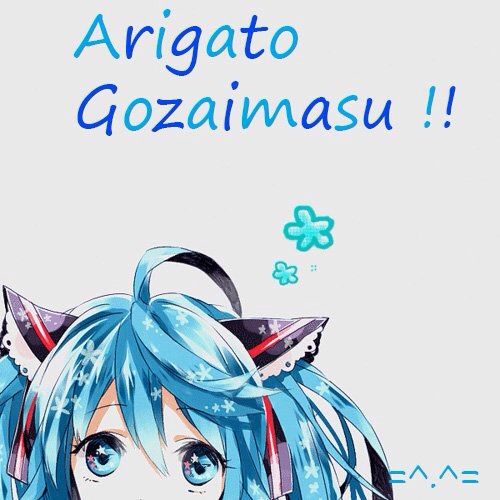
Arigato Gozaimasu /w\ •Anime• Amino
The Japanese word " arigato " (ありがとう) means " thank you " or " thanks ". It is the most basic and one of the most commonly used expressions to say " thank you " in Japanese. Personally, I prefer to think of it and translate it as " thanks " instead of "thank you" since it is the slightly more casual version.

Is it Domo arigato or Arigato gozaimasu? Find out in our quick guide to must know Japanese
どうもありがとう(Thank you). Doumo arigatou gozaimasu. どうもありがとうございます(Thank you very much). Doumo arigatou gozaimashita. どうもありがとうございました(Thank you very much.). It is casual to say "arigatou" alone. It can be used between friends and family. If you add "gozaimasu.
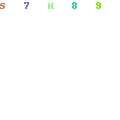
Everything about arigatou gozaimasu in Japanese
The Real Meaning of Akemashite Omedetou (Gozaimasu) Akemashite omedetou gozaimasu (明けましておめでとうございます) is a formal Japanese expression used in January after the new year has begun. It means "Happy New Year", but a more accurate English translation would be "Congratulations on the start of the new year" or.
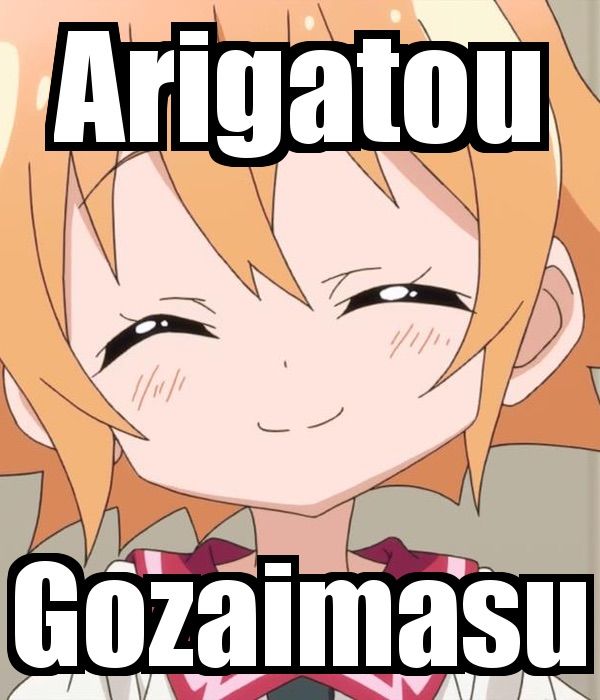
Arigatou Gozaimasu Minna Anime Amino
いただきます (itadakimasu) is a Japanese phrase used before meals as an expression of thanks and acknowledgment for the food about to be eaten. Literally, itadakimasu translates to "I will humbly receive.". There aren't any direct equivalents to this uniquely Japanese expression, but the French "bon appétit" has a similar use.

THANK YOU in Japanese arigatou gozaimasu vs arigatou gozaimashita YouTube
Arti Kata "Arigatou gozaimasu" Pasti banyak orang yang tahu bahasa Jepang yang satu ini. Arigatou gozaimasu yang digunakan untuk mengungkapkan rasa "terima kasih" biasa dipakai dalam situasi umum yang kebanyakan bersifat formal. Umumnya digunakan ketika kalian ingin mengungkapkan "terima kasih" kepada orang yang belum kalian kenal, orang yang jauh lebih tua atau status sosialnya.